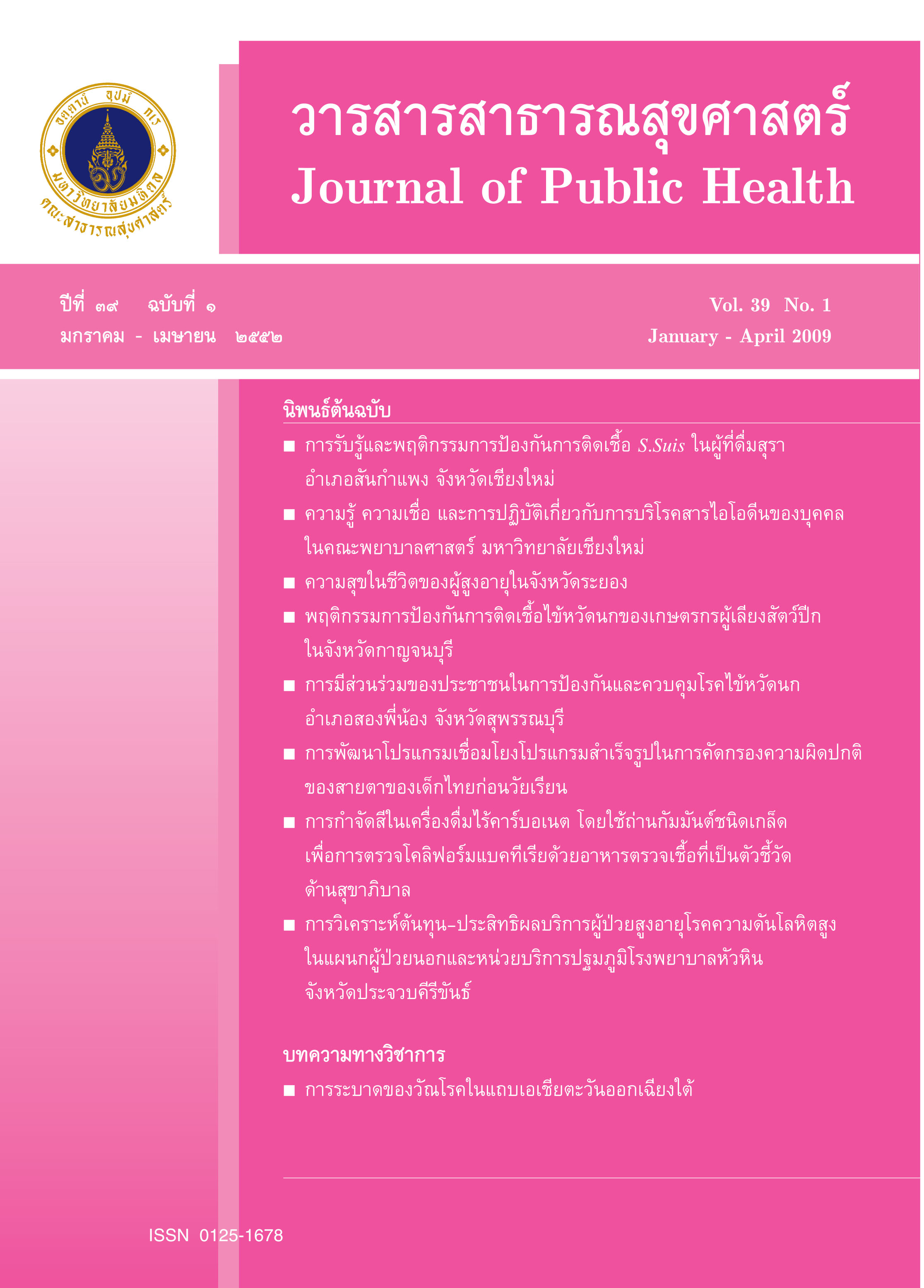ประสิทธิผลของโปรแกรมการพัฒนาพฤติกรรมการบริโภคอาหาร และการออกกำลังกายสำหรับเด็กนักเรียนที่มีภาวะโภชนาการเกิน ในเขตกรุงเทพมหานคร
Keywords:
Self-Efficacy theory, social support, dietary, exercise behavior, overweight students, ทฤษฎีความสามารถตนเอง, แรงสนับสนุนทางสังคม, การบริโภคอาหาร, การออกกำลังกาย, ภาวะโภชนาการเกินAbstract
ABSTRACT
The purpose of this quasi-experimental study was to evaluate the effect of health behavior development program applying self-efficacy theory and social support for improving dietary and exercise behavior in overweight students. The sample consisted of overweight students aged from 10-12 years from 2 schools in Bangkok area. One school was experimental group and another was comparison group. 31 students were selected by random sampling to be the experimental group and 32 students to be comparison group. The research procedure was 5 weeks for dietary and exercise behavior development program and 4 weeks follow-up. Data were collected by self-administered questionnaires at pre, post, and follow-up. Statistical analysis was performed by using mean, standard deviation, Independent Sample t-test and Repleted measure ANOVA.
The result of this study indicated that after the experiment and 4 weeks follow up, the experimental group had significantly higher mean score of knowledge about obesity, dietary and exercise, perceived self-efficacy and outcome expectation, and practice on dietary and exercise than before the experiment and than those of the comparison group (p-value < 0.05). The results of this research supported that the dietary and exercise behavior development program by applying self-efficacy theory and social support had some effect increasing knowledge about obesity, dietary and exercise and self-efficacy. Involvement of the parent could also enhance continually practices.
Key words: Self-Efficacy theory, social support, dietary, exercise behavior, overweight students
Downloads
Issue
Section
License
Creative Commons License CC-BY-ND


